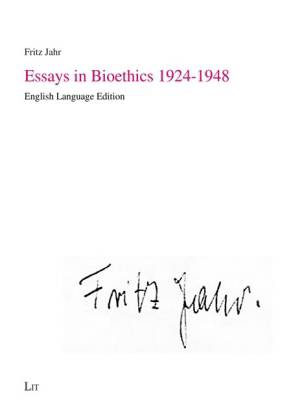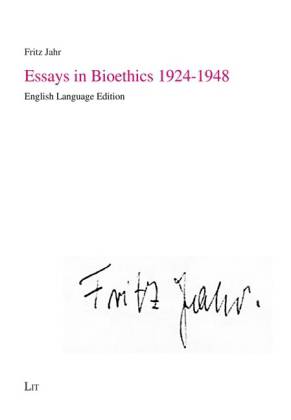
- Afhalen na 1 uur in een winkel met voorraad
- Gratis thuislevering in België vanaf € 30
- Ruim aanbod met 7 miljoen producten
- Afhalen na 1 uur in een winkel met voorraad
- Gratis thuislevering in België vanaf € 30
- Ruim aanbod met 7 miljoen producten
Zoeken
Omschrijving
In 1785, German philosopher Immanuel Kant introduced the 'categorical imperative' for human persons, based on the sanctity of the moral law. Over a century later, Fritz Jahr, a Protestant pastor and educator, expanded on Kant's imperative, offering an integrated view of living natural and social environments. Jahr coined the term 'Bio-Ethik' (Bioethics) and defined the 'bioethical imperative' (also based on the sanctity of life) as: "Respect every Living Being as an end in itself and treat it, if possible, as such!" In this book, 22 essays document the early European roots of modern bioethics and provide guidance for developing global cultures in integrated bioethics. (Series: Practical Ethics - Documentation / Ethik in der Praxis - Materialien - Vol. 15)
Specificaties
Betrokkenen
- Auteur(s):
- Vertaler(s):
- Uitgeverij:
Inhoud
- Aantal bladzijden:
- 136
- Taal:
- Engels
- Reeks:
- Reeksnummer:
- nr. 15
Eigenschappen
- Productcode (EAN):
- 9783643903372
- Verschijningsdatum:
- 20/06/2013
- Uitvoering:
- Hardcover
- Formaat:
- Genaaid
- Afmetingen:
- 147 mm x 208 mm
- Gewicht:
- 294 g

Alleen bij Standaard Boekhandel
+ 58 punten op je klantenkaart van Standaard Boekhandel
Beoordelingen
We publiceren alleen reviews die voldoen aan de voorwaarden voor reviews. Bekijk onze voorwaarden voor reviews.











